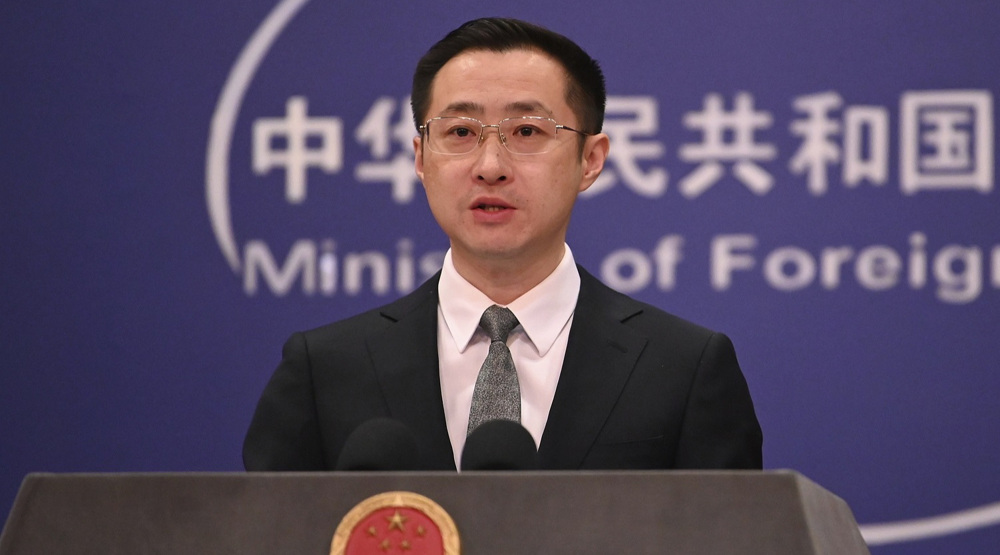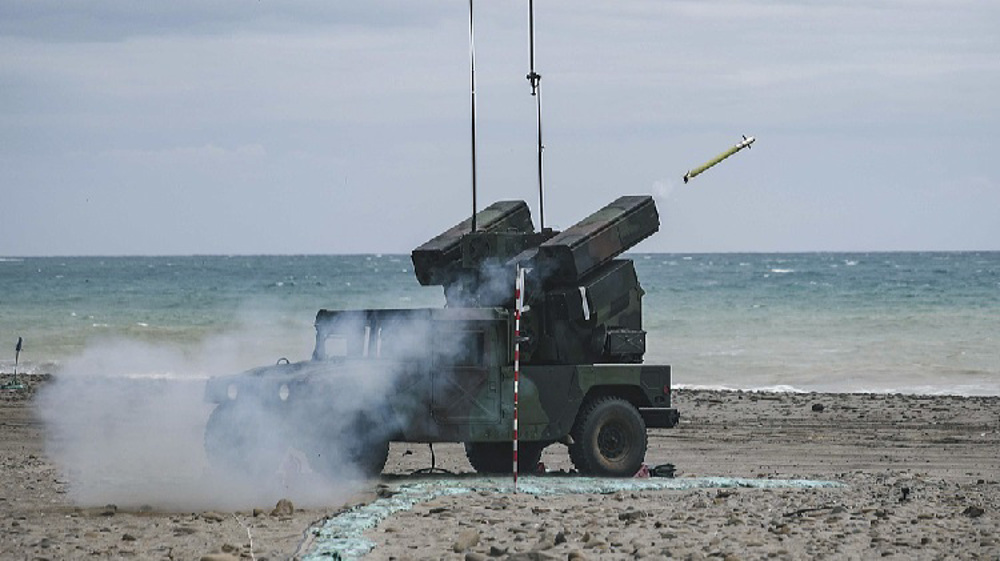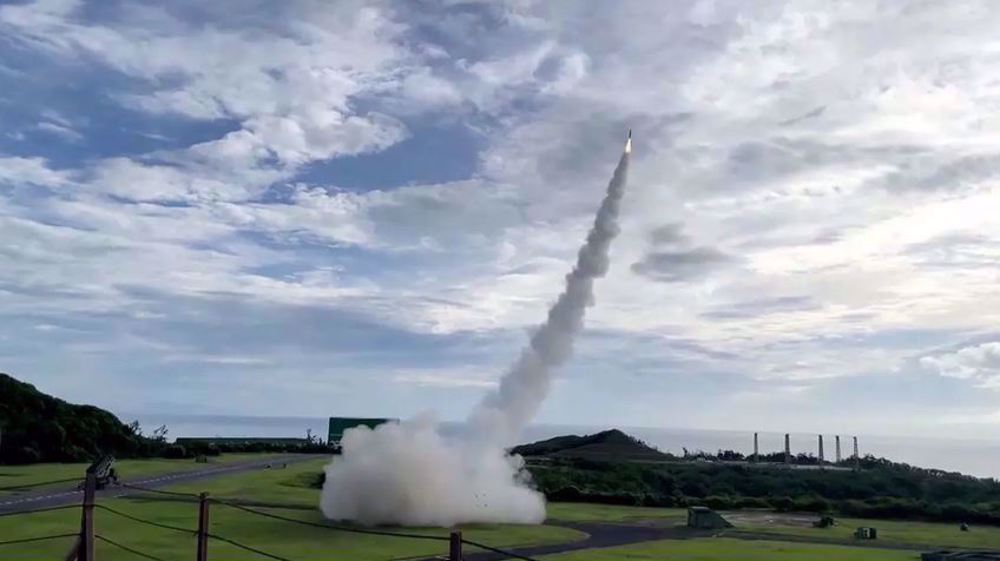China won't tolerate foreign forces meddling in internal affairs: President Xi
Chinese President Xi Jinping has once again warned “foreign forces” against meddling in the country’s internal affairs, as he swore in a new government for the Chinese territory of Macau.
Speaking at a ceremony marking the 20th anniversary of Macau's handover to China, the president said his government would not "tolerate" any interference in the port city or in Hong Kong.
Macau, a former Portuguese colony, is governed under China’s "one country, two systems" formula, just as Hong Kong is.
The system guarantees a "high degree of autonomy" for the regions for a period of 50 years with the government in the mainland maintaining control of defense and foreign affairs.
Xi said Macau’s “tradition of valuing unity must be preserved.”
“I must emphasize, since Hong Kong and Macau’s return to the motherland, dealing with these two Special Administrative Regions' affairs is entirely China's internal affairs and none of the business of foreign forces,” he added.
He also swore in the region’s new chief executive, Ho Iat-seng.
Under the one country, two system rule, Macau has its own government, legal and financial affairs, as does Hong Kong.
Xi also praised Macau’s government for enacting a national security law that prohibits "treason, secession and subversion" against the central government in Beijing.
Hong Kong, the other Chinese territory, also attempted to introduce the same law in 2003, but the plan sparked mass protests and forced the government to abandon it.
The city has been rocked by turbulent protests since June over a proposed bill that would have allowed extradition to mainland China.
The bill was later withdrawn, but the protests continued and have taken on an increasingly violent form during the past six months.
China has repeatedly condemned unrest in the region, blaming foreign powers, including the United States and Britain — the former colonial power in the city — for stirring anti-establishment sentiment and interfering in the country’s internal affairs.
The US has recently introduced several pieces of legislation that could potentially target top Chinese officials with sanctions over what it alleges as human rights abuses in Hong Kong and China’s western Xinjiang Province.
China strongly denounced the legislation, calling the move serious instance of interference in its internal affairs.
Earlier this month, the US House of Representatives passed a bill, which allows the US administration to impose sanctions on Chinese government officials responsible for the alleged repression of Uighurs, a minority Muslim community in Xinjiang.
The legislation came months after a UN human rights panel alleged that up to two million Uighurs had been forced into “political camps for indoctrination” in the autonomous region, which is home to about 10 million Uighurs.
China rejects claims of mistreating Uighurs, saying it has been taking anti-terrorism measures against separatists in the region who are seeking to join Takfiri outfits such as al-Qaeda.
Detention of Uighurs 'fake news'
China’s ambassador to Australia on Thursday dismissed allegations over the Muslim community as “utterly fake new,” saying any arrests that had been made were aimed at countering terrorism.
Ambassador Cheng Jingye said the detention in Xinjiang province had “nothing to do with human rights, nothing to do with religion” and was “no different” from other countries’ counter-terrorism measures.
Xinjiang’s Governor Shohrat Zakir had also said previously that the counter-terrorism measures in Xinjiang were no different from those in the United States.
He said the US was turning a blind eye to social stability in the region and using issues there to sow discord among ethnic groups in China.
From MKO to Tondar, how Germany became safe haven for anti-Iran terror groups
Hamas open to any proposal aiming to end Gaza war: Hamdan
Role of private sector in Iran’s thriving space industry
Four Palestinians killed in Israeli strikes on West Bank
Iran warns of ‘calculated, precise’ response to Israeli aggression
After year-long genocide, Israeli military hires private firms to flatten buildings in Gaza
Malaysia working on resolution to expel Israel from United Nations
Israeli military made no territorial gain in Lebanon: Report
















 This makes it easy to access the Press TV website
This makes it easy to access the Press TV website